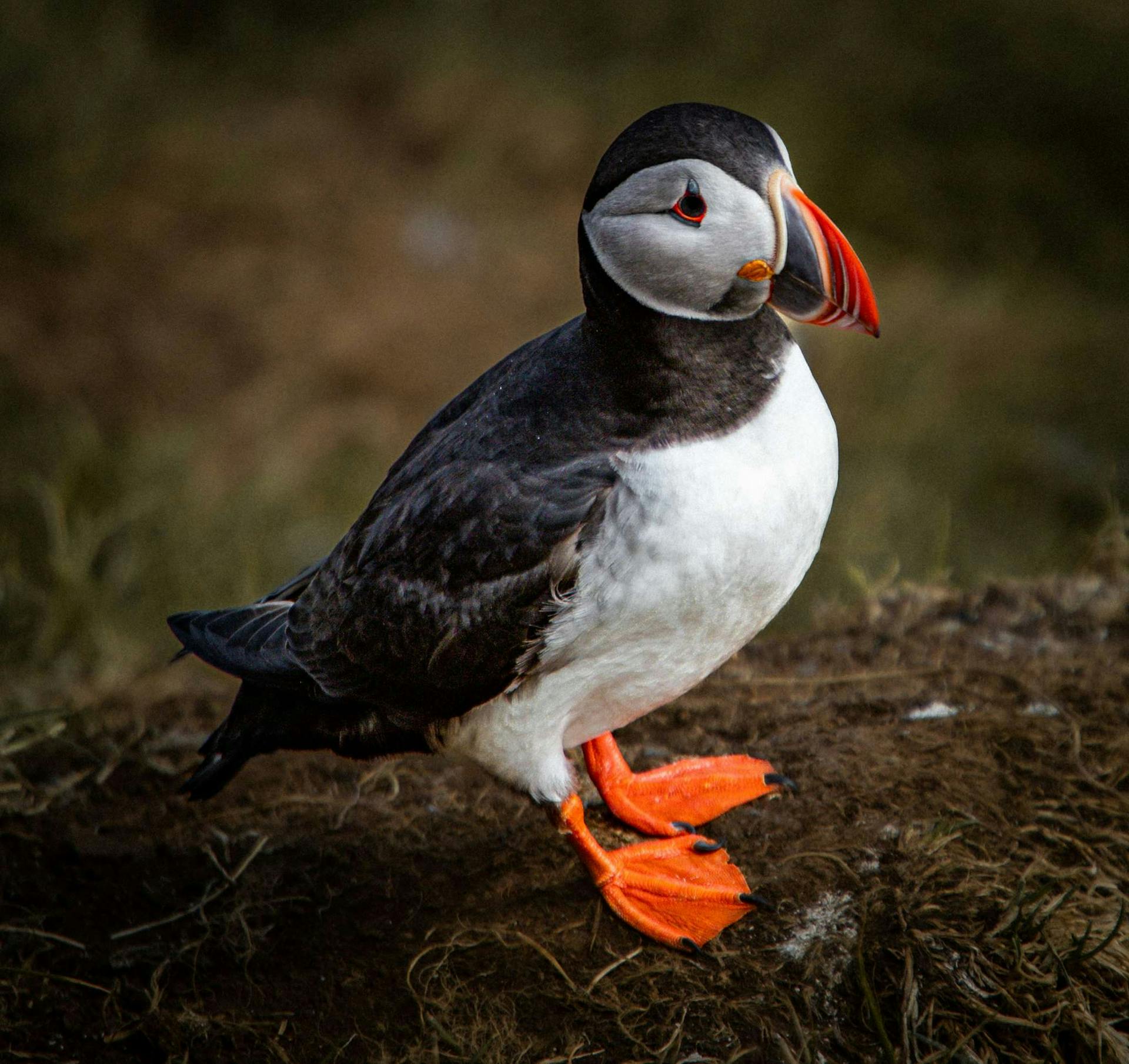Iceland Campervan vs Hotel: Which is Better for Your Trip?
If you’re visiting Iceland, one of the first choices you’ll face is whether to explore the country in a campervan or stay in a hotel. Both come with their own set of perks, but they also shape your trip in very different ways.
Some travelers love the freedom of camping, cooking their own food, waking up beside waterfalls, and having the flexibility to change plans on the fly. Others prefer the comfort of a hotel room, with a soft bed, ready-made breakfast, and built-in facilities waiting at the end of the day.
So which option is best for your style of travel? In this guide, we’ll break down the pros and cons of Iceland campervan vs hotel, looking at costs, comfort, flexibility, and what it’s really like to explore the ring road or south coast with either option.
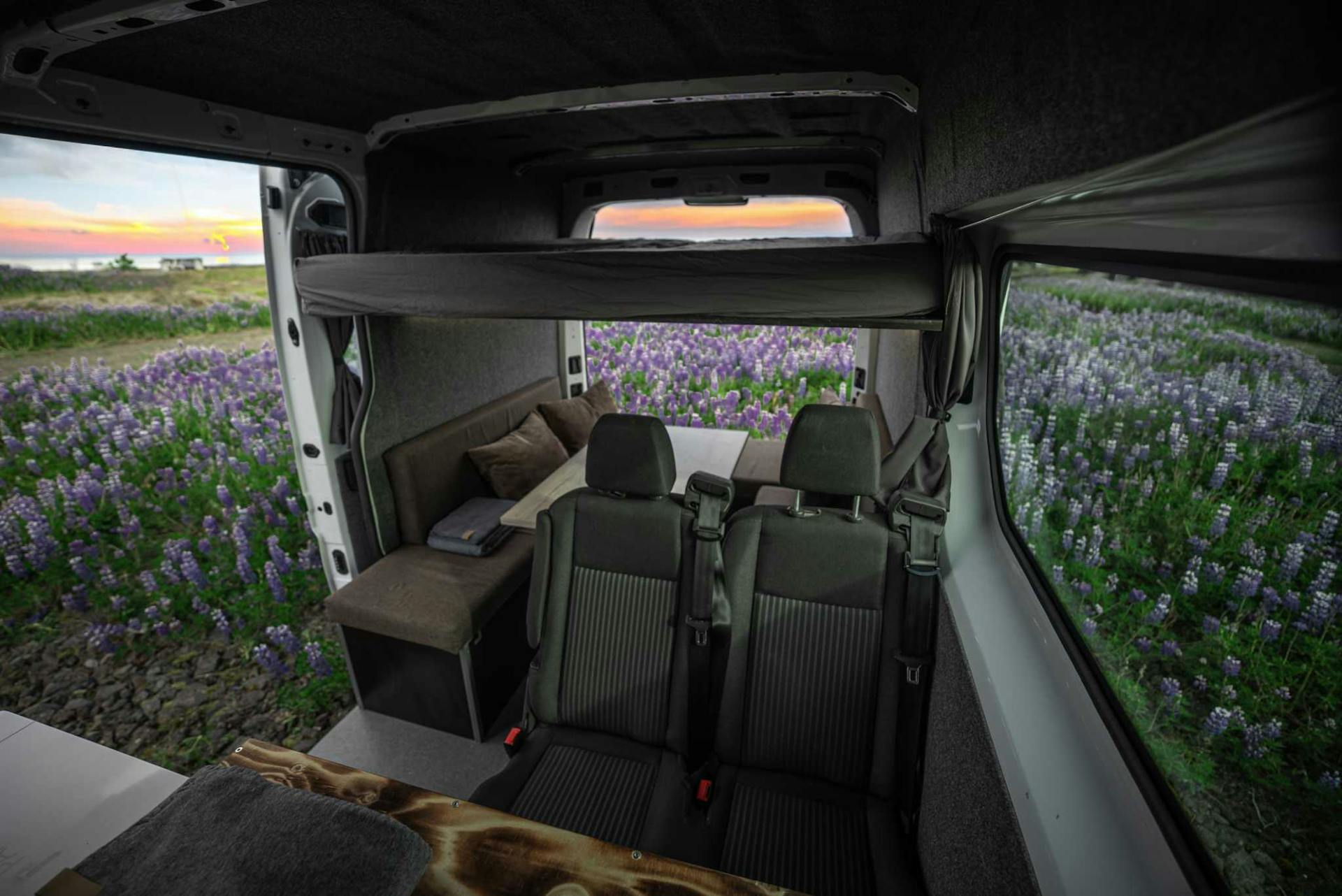
Why the Campervan Experience is Unique
Traveling by campervan gives you a kind of freedom you can’t get from a hotel stay. You’re not tied to check-in times, reservations, or a single town. Instead, you carry your bed, kitchen, and gear with you, ready to stop whenever you find a scenic spot.
- You can wake up at a campsite near a glacier and fall asleep by the ocean the same night.
- You can cook your own meals on the road and save money instead of eating at a restaurant every day.
- You’re free to chase the northern lights or stay longer if the weather is good.
This flexibility is why so many of our happy campers choose a van instead of traditional accommodation.

Why Hotels Still Appeal to Many Travelers
On the other hand, staying in a hotel offers comforts that camping can’t always match. After a long day of road trips, it feels nice to return to a hotel room with a private shower, soft bed, and no worries about wind rattling your camper at night.
Hotels also appeal to travelers who:
- Prefer not to cook their own food and enjoy dining in a restaurant.
- Want daily breakfast provided and don’t want to think about groceries.
- Like having staff to account for things like cleaning, towels, and support.
- Need guaranteed facilities—from heating to laundry services.
Hotels work well if you’re staying in one town for several nights, especially in Reykjavik or Akureyri in the north.
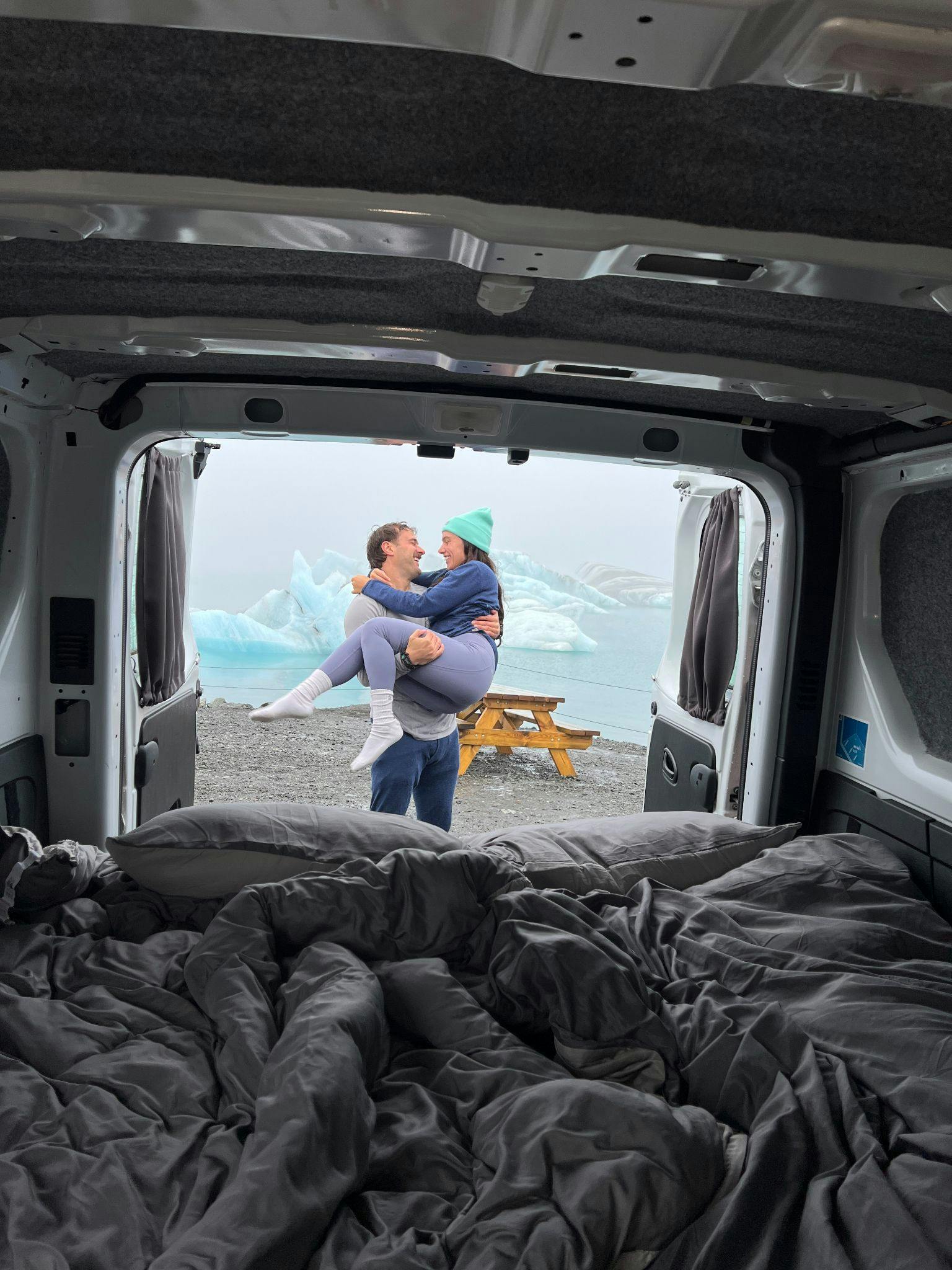
Cost Comparison: Campervan vs Hotel
One of the biggest factors when choosing between a campervan and a hotel is cost. Iceland is not a cheaper destination, so understanding what you’ll actually spend matters.
Campervan Costs
- Renting a camper includes your transportation and your accommodation in one.
- Our campers come with unlimited mileage, manual transmission, and the option to add extras like a sleeping bag or cooking kit.
- Campsite fees are usually around €10–€20 per person, per night.
- You’ll spend money on gas stations, but you’d have the same fuel costs with a rental car.
- Cooking your own meals saves money compared to eating out every night.
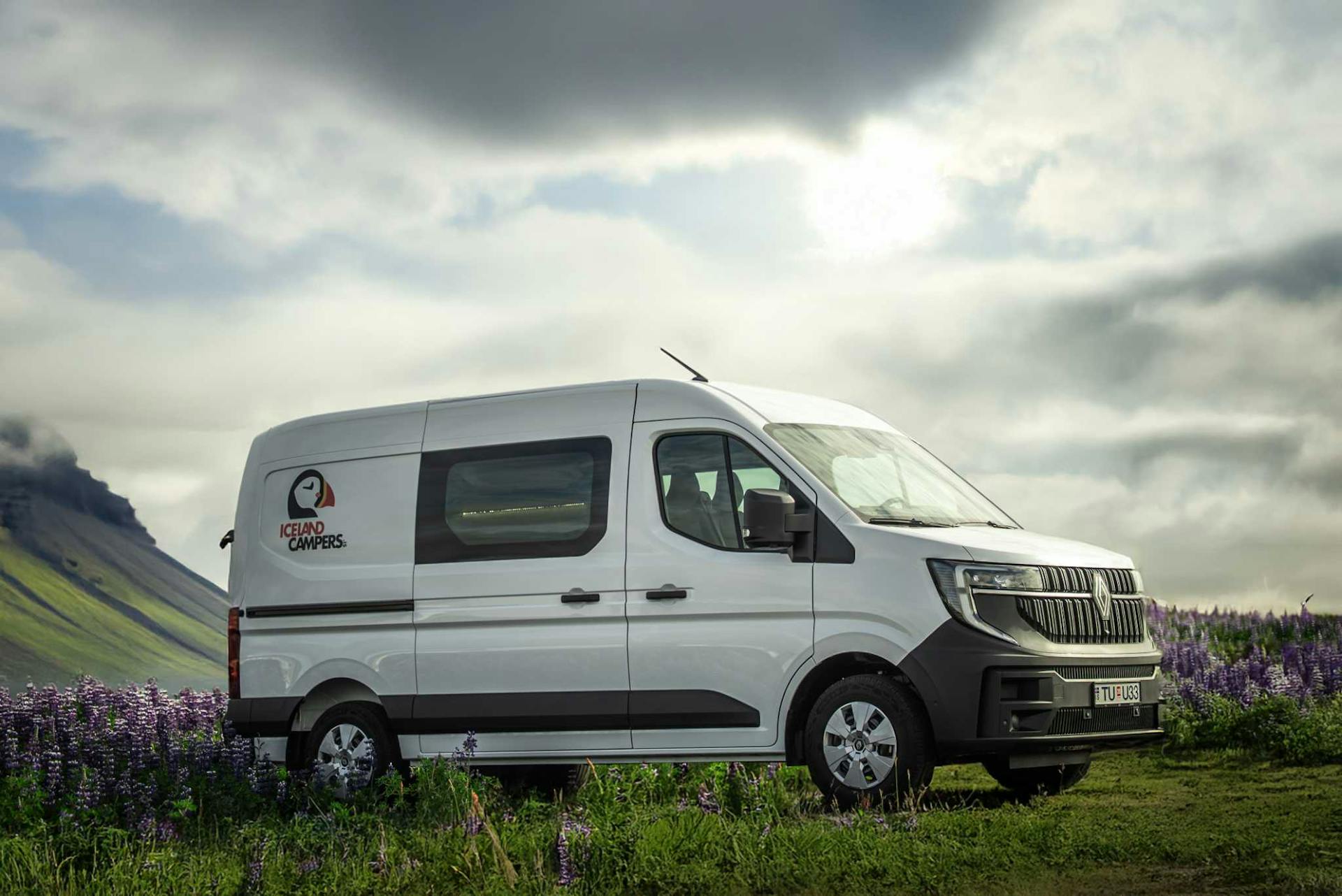
Hotel Costs
- Hotels in Iceland can be expensive, especially in summer during peak season. Expect €150–€300 per night for a mid-range place.
- You’ll also need a rental car or car rental to get around, adding another €60–€100 per day plus fuel.
- Some hotels include breakfast, but you’ll likely spend extra on lunches and dinners at a restaurant.
- Parking can be limited in Reykjavik, and while many sites outside the city have free parking, you’ll still need to plan ahead.
Bottom line: A campervan is often cheaper for long road trips, while a hotel plus car rental can quickly add up, especially for multiple overnight stays.
Comfort and Space: Hotel Room vs Camper Van
When it comes to comfort, there’s no denying that a hotel has the edge. A hotel room comes with a proper bed, private bathroom, and sometimes even a shower and spa. After a long day trip, that can feel like pure luxury.
But comfort isn’t just about a soft bed. It’s also about how much space you have and how easily you can make it feel like home.
- Hotels give you room to spread out. You’ll have luggage storage space, a wardrobe, and sometimes a desk or seating area.
- Camper vans, on the other hand, are compact but designed with smart layouts. You’ll have everything you need—bed, small kitchen setup, and gear—all within arm’s reach. For many tourists, the cozy feel of a camper actually makes the vacation more memorable.
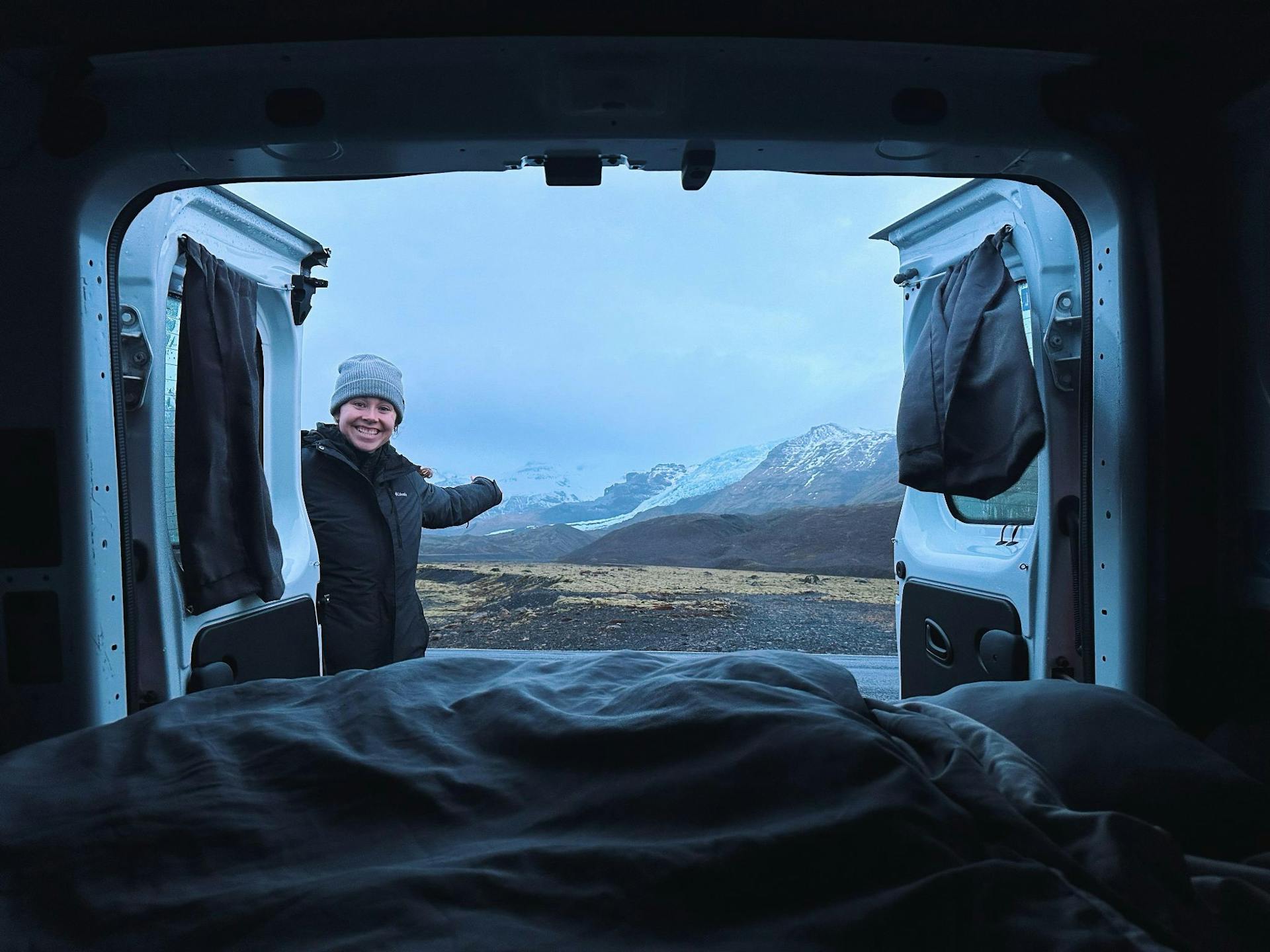
Flexibility on the Road
A hotel ties you to a specific town or location. Once you’ve booked, you’re committed to staying overnight there, even if you find something interesting two hours down the road.
A campervan changes that. You can adapt your plan based on weather, your mood, or new recommendations. Maybe you decide to spend an extra night near the south coast, watching the waves crash onto black sand beaches, or perhaps you want to chase the northern lights in the north. With a van, it’s easy.
This flexibility makes road trips more spontaneous and rewarding. You don’t need to book accommodation months in advance, which gives you more freedom to explore.
Weather and Road Conditions
The weather in Iceland can be unpredictable. One moment it’s sunny, the next it’s heavy rain or strong wind. How does that affect your choice?
- Hotels offer shelter from the elements. No matter how bad the weather gets, you’ll have a warm room waiting.
- Campers handle wind surprisingly well, but it’s a different experience. You’ll sometimes hear gusts at night, and you’ll need to dress in layers to stay warm. Fortunately, our vans come with heating and the option to add a sleeping bag for extra comfort.
As for roads:
- Stick to the ring road and main highways, which are paved and suitable for all cars.
- Avoid F roads and highlands with a camper—they require 4x4s, which we don’t offer.
- In summer, road conditions are generally excellent. In winter, icy surfaces can make driving trickier, whether you’re in a campervan, motorhome, or rental car.
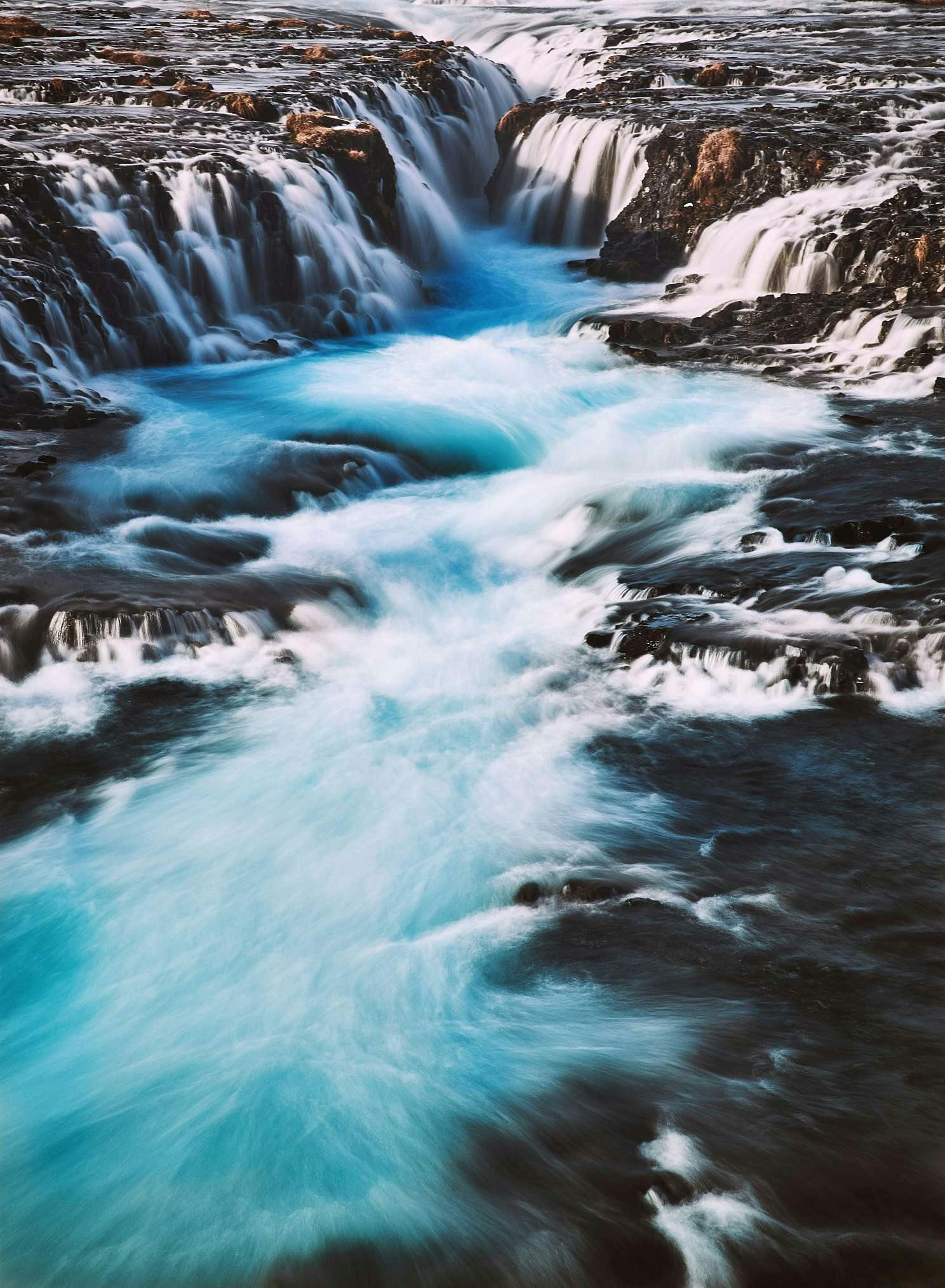
Facilities: Campsites vs Hotels when Visiting Iceland
Hotels and Their Facilities
When you stay in a hotel in Iceland, you can expect a certain level of comfort and consistency. Most hotels are designed to give you everything you need without extra effort.
- Bathrooms and Showers: Each room comes with a private bathroom and usually a modern shower. Hot water is reliable, and you won’t have to share facilities with strangers.
- Heating and Comfort: Icelandic weather can be unpredictable, but hotels are always warm, dry, and well-insulated. After a long day, stepping into a heated hotel room feels relaxing.
- Restaurants and Food: Many hotels include breakfast in the room rate. Some also have in-house restaurants, which is convenient if you don’t want to go out to eat.
- Facilities and Extras: Larger hotels may offer laundry, gyms, spas, or lounges. You can come back at the end of the day, rest, and not worry about anything else.
Hotels provide stability. Everything is in one place, ready when you arrive, which makes them appealing for travelers who want predictability in their overnight stays.

Campsites and Their Facilities
Campsites, on the other hand, offer a very different experience. Facilities can vary widely depending on where you stop, but that’s part of the camping lifestyle.
- Basic Campsites: Some are simple fields with only toilets and sinks. They’re functional and affordable, but you won’t find many extras. These are common in more rural parts of the ring road.
- Standard Campsites: Most include bathrooms, shared shower facilities, and designated areas for cooking. Some even have sheltered kitchens with stoves, sinks, and seating areas.
- Well-Equipped Campsites: In certain areas—especially near popular sites along the south coast or in the north—you’ll find campsites with indoor lounges, Wi-Fi, laundry rooms, and larger kitchens. These places are great for resting on a long trip, meeting other campers, and reorganizing your gear.
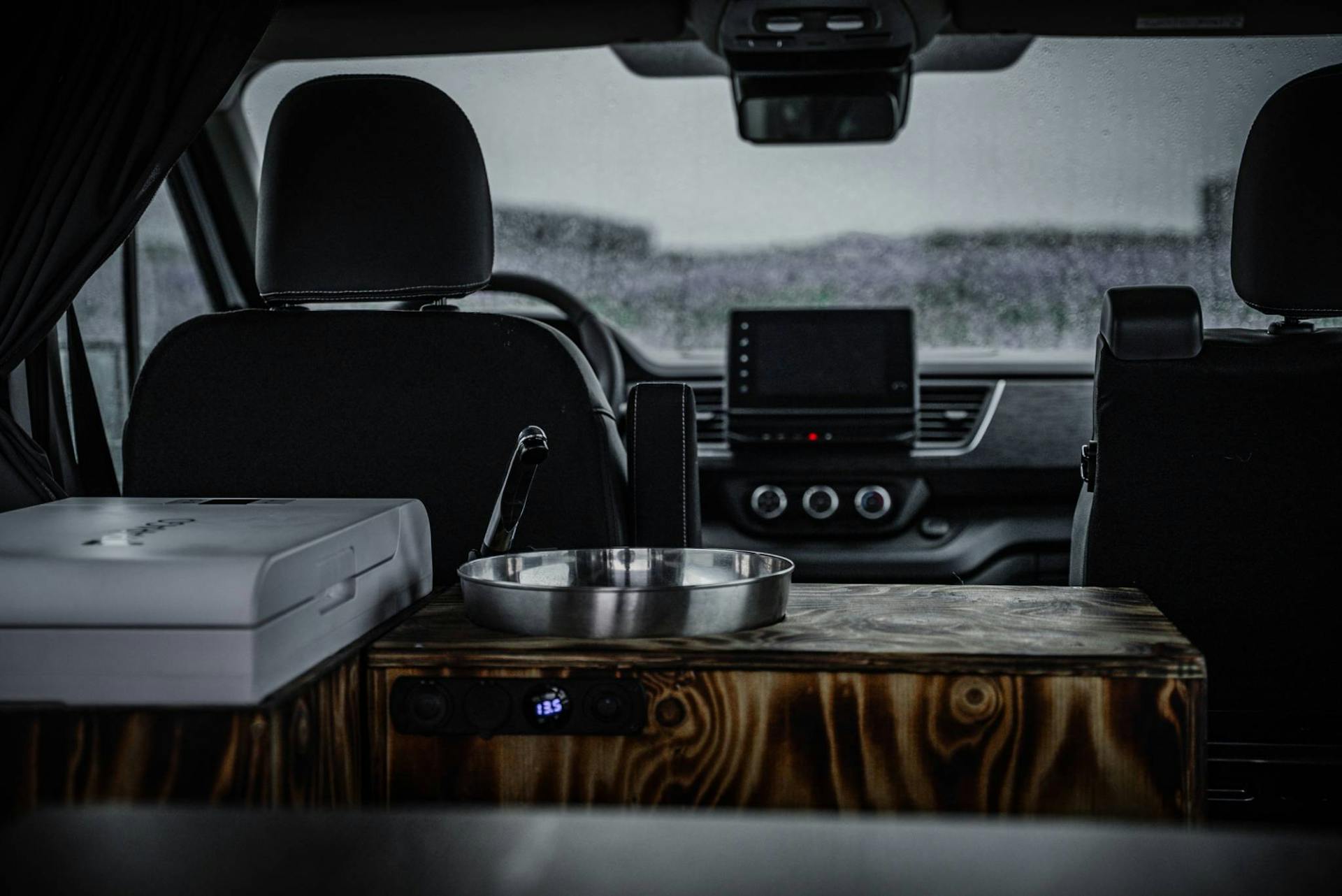
The Outdoor Lifestyle
While campsites don’t match the privacy or comfort of a hotel, they often give you something else that many travelers value:
- Community: Meeting other campers is part of the experience. People share stories, tips about road conditions, and sometimes even meals.
- Cooking Your Own Food: Instead of relying on a restaurant, you can prepare your own meals. This helps save money, gives you control over what you eat, and creates a sense of routine during your journey.
- Connection to Nature: Many campsites are located near waterfalls, glaciers, or even natural hot springs. Waking up and stepping outside your van puts you right in the middle of Iceland’s dramatic landscapes.
- Adventure Factor: Life on the road means less luxury but more freedom. You’re not just sleeping in a room—you’re living the rhythm of camping and experiencing Iceland in a more hands-on way.
Daily Life in a Camper vs Hotel
Staying in a Hotel
- Meals:
- Most meals are eaten in a restaurant, since rooms don’t usually include cooking facilities.
- Adds to the cost of your trip, especially in summer when dining out can be expensive.
- Breakfast:
- Many hotels provide a ready-made breakfast included in the room rate.
- Convenient if you don’t want to think about groceries, cooking, or cleanup.
- Evenings & Comfort:
- Return to the same hotel room each night, often in a town with shops, cafés, and restaurants.
- Guaranteed private shower, warm bed, and more space to spread out.
- Less flexible—you’re tied to your booking, and changing overnight stays at the last minute isn’t always easy.
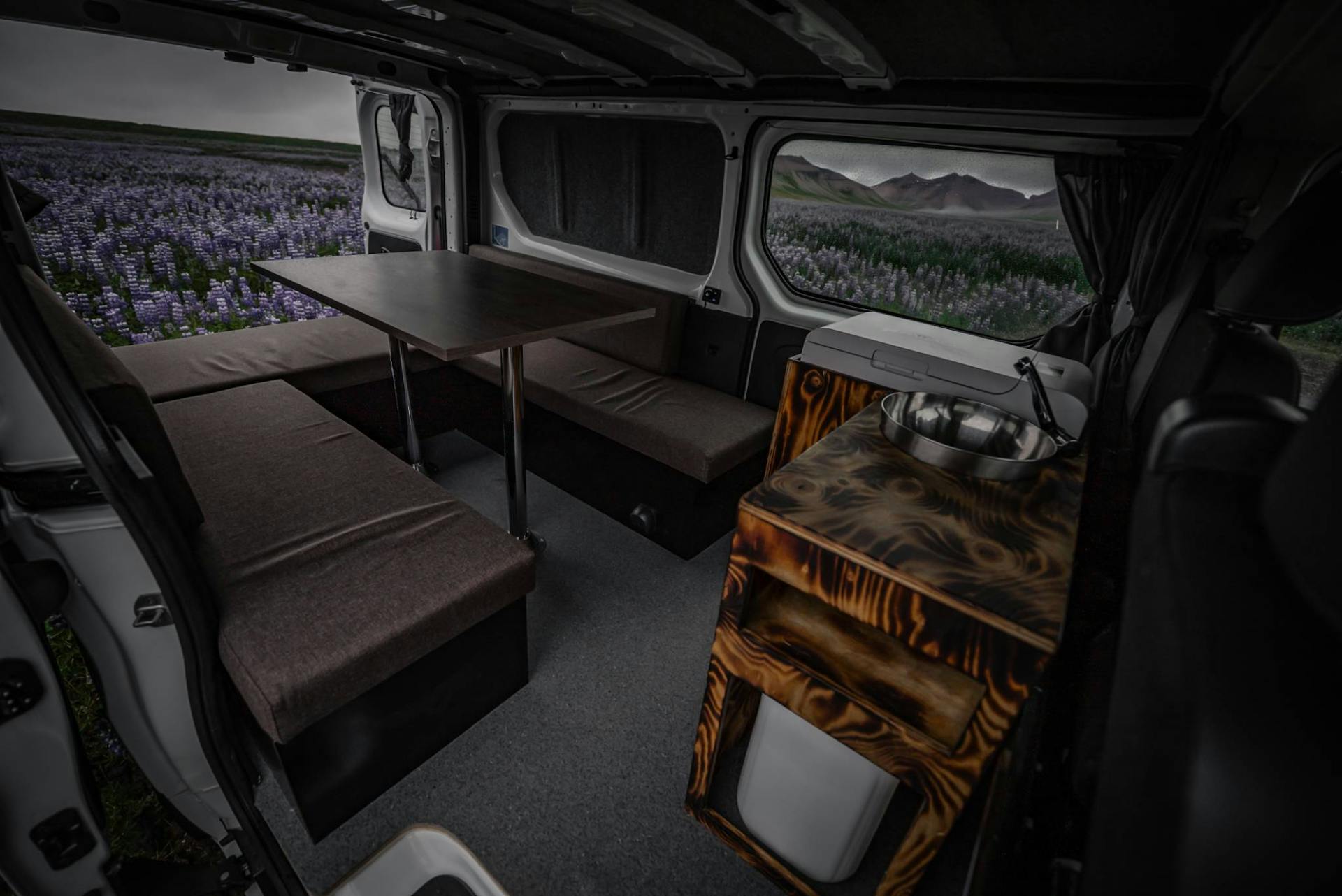
Staying in a Camper
- Fuel & Supplies:
- Regular stops at gas stations to refuel, grab snacks, or stock up on groceries.
- These stops often become part of the adventure and a way to connect with locals.
- Cooking & Food:
- Preparing your own food is part of the camping lifestyle.
- Campers include basic cooking gear, with the option to add extras for more storage space.
- Cooking helps you save money compared to restaurants and lets you eat when and where you like.
- Evenings & Campsites:
- Each night, you choose a new campsite—whether in the north, along the south coast, or near a glacier or waterfall.
- Campsites vary: some have basic facilities, others include lounges, kitchens, and showers.
- Meeting other campers adds to the community feel of the journey.
- Compact Living:
- You’ll get used to organizing your gear and making your bed daily.
- Living in a camper van means less space, but more freedom to explore.
- The routine of driving, cooking, and setting up each night becomes part of the joy of road trips.
Pros and Cons of Campervan vs Hotel
Both options work in Iceland—it really depends on the kind of trip you want to have. Here’s how they compare:
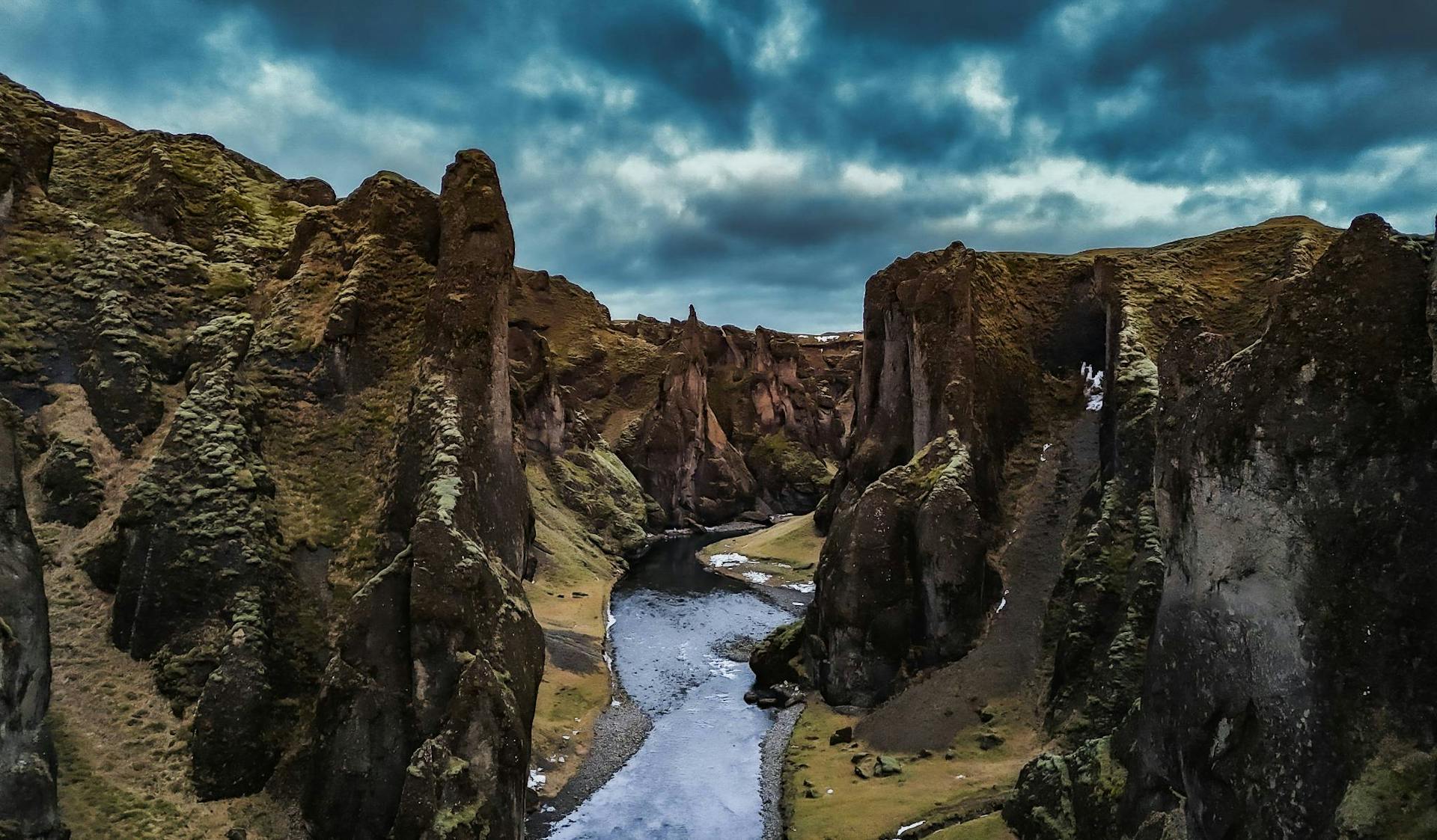
Pros of a Campervan
- Freedom to travel at your own pace without booking accommodation in advance.
- Combines transport and a place to sleep—no need for a separate rental car.
- Access to scenic campsites near waterfalls, glaciers, and the south coast.
- Opportunity to cook your own food, which is cheaper than eating in a restaurant daily.
- A true camping adventure that feels closer to Icelandic life.
Cons of a Campervan
- Less space compared to a hotel room.
- You’ll share shower and bathroom facilities at campsites.
- Weather can affect your comfort, especially wind at night.
- Not suitable for F roads or highlands.
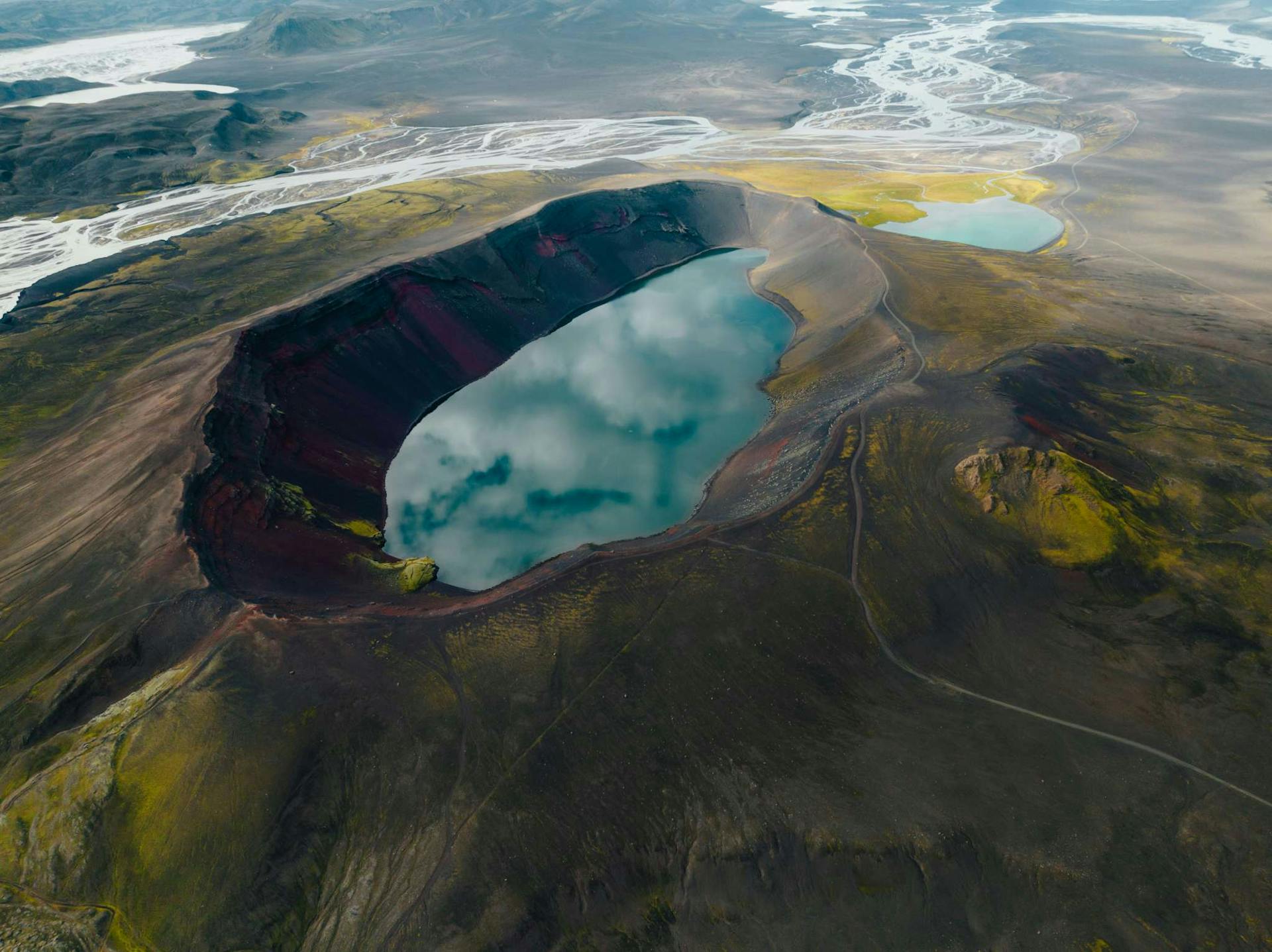
Pros of a Hotel
- Comfortable bed, private shower, and guaranteed heating every night.
- Meals often included—sometimes breakfast is part of the cost.
- Ideal for travelers who prefer not to deal with camping or compact living.
- Good choice if you’re staying several nights in the same town.
Cons of a Hotel
- Requires a car rental or rental car for transport.
- Higher overall cost, especially during summer and peak season.
- Less flexibility—you’re tied to your booking and overnight stays.
- Harder to adapt to road conditions and weather changes on the fly.
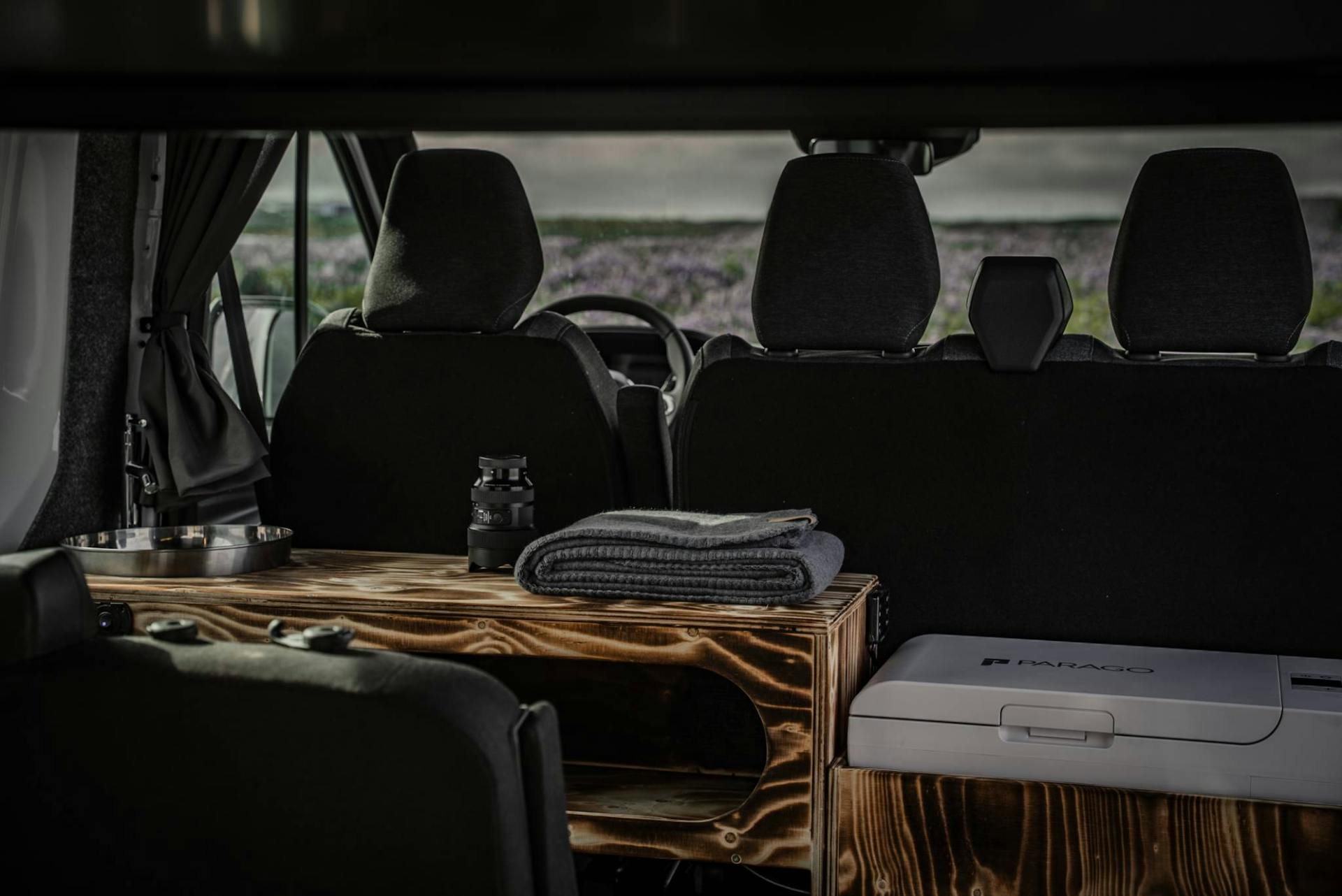
Cost Breakdown: A Particular Case
Let’s compare a particular case: a couple traveling the ring road for 7 nights in summer.
Campervan Option
- Renting a camper van: €120 per night x 7 = €840
- Campsite fees: €15 per person x 2 x 7 = €210
- Fuel and groceries: €300
- Total: ~€1,350
Hotel Option
- Hotel: €200 per night x 7 = €1,400
- Car rental: €80 per day x 7 = €560
- Fuel + restaurants: €400+
- Total: ~€2,360
The camper is almost €1,000 cheaper, while also giving more flexibility.
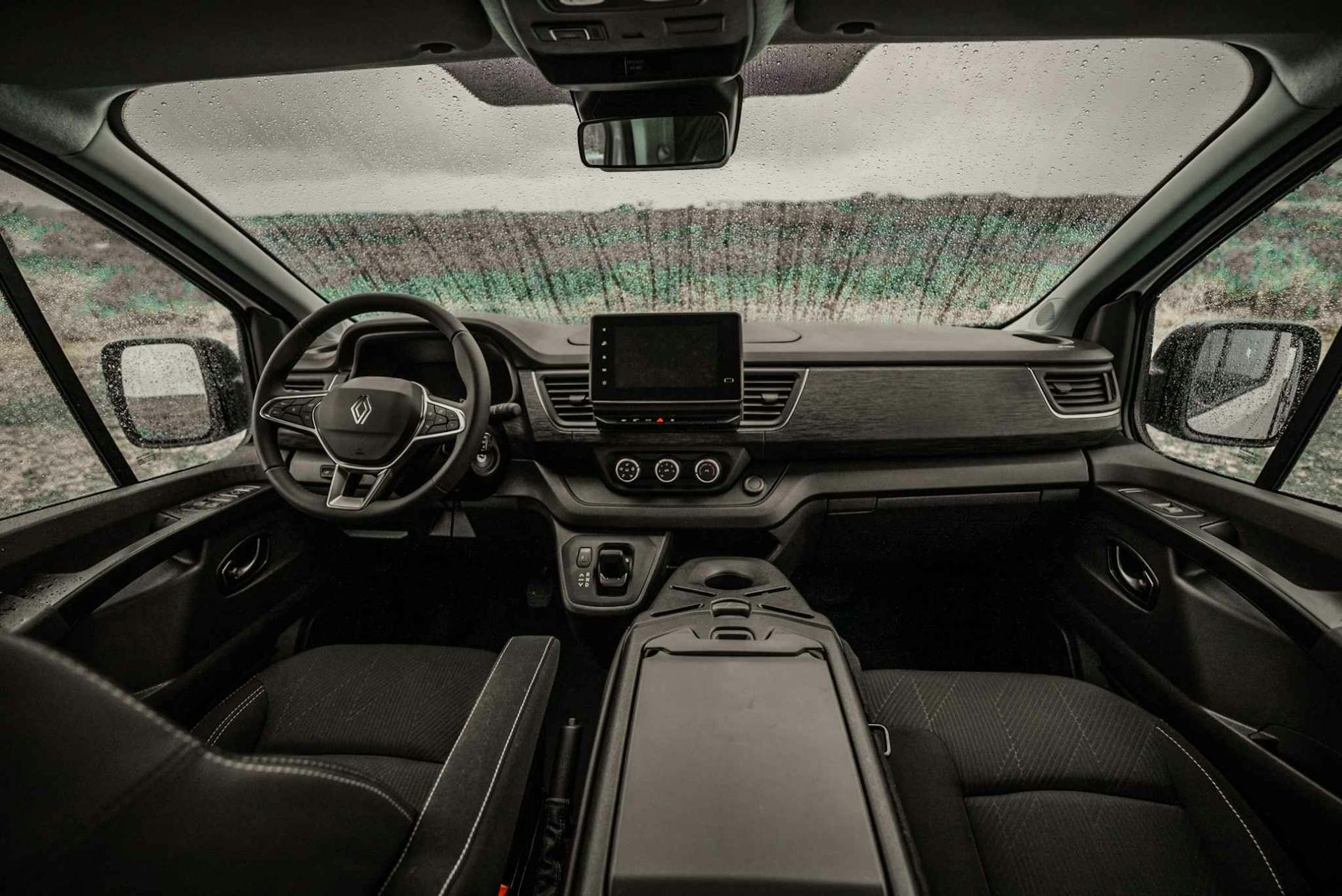
FAQs About Iceland Camper van vs Hotel
Is a Campervan Worth It in Iceland?
Yes. A camper is often cheaper, more flexible, and ideal for road trips along the ring road. It combines your transport and accommodation, making it especially practical if you want to explore beyond Reykjavik.
Can You Sleep Anywhere in a Campervan in Iceland?
No. Wild camping is not allowed. You need to stay in official campsites, which are spread across the country. Each campsite has different facilities, but you’ll always find a place for staying overnight.
What Are the Disadvantages of a Campervan?
- Less space than a hotel room.
- Shared shower and cooking facilities at campsites.
- Weather like wind and rain can affect comfort.
- Not allowed on F roads or into the highlands.
Can Campervans Go on F-Roads in Iceland?
No. Our vans are not 4x4, so they can’t go into the highlands or on F roads. Stick to the ring road and main routes, which still cover the best sites in Iceland.
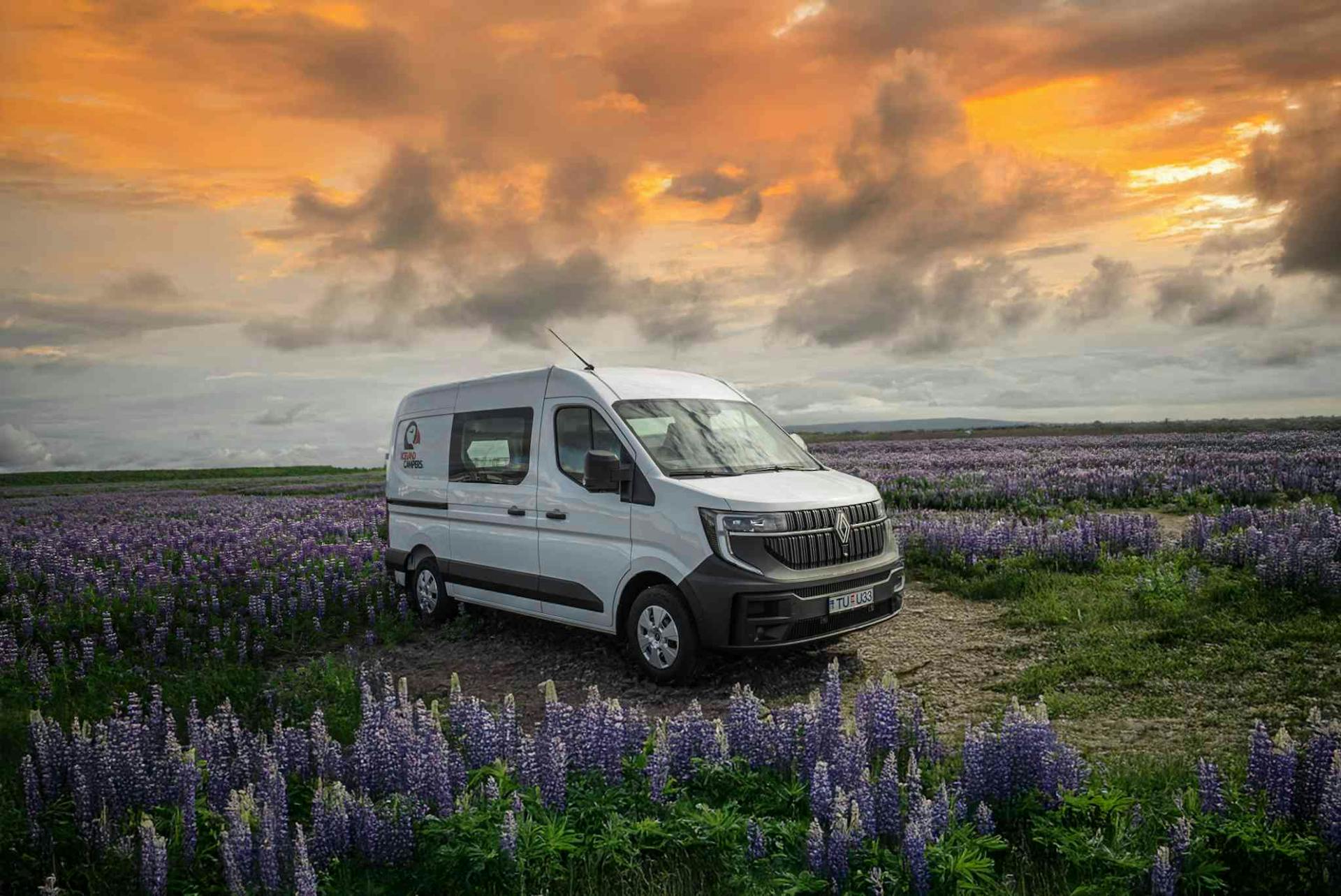
Campervan or Hotel?
So, Iceland camper van vs hotel—what’s best? It depends on your travel style. If you want comfort, daily service, and the classic hotel experience, then booking rooms might be right for you. But if you want freedom, flexibility, and the chance to live the camping lifestyle while seeing more of the country, then a camper is the way to go.
With us, you’ll get:
- Reliable manual campers with heating.
- Unlimited mileage to cover the full ring road.
- Extras like sleeping bags, cooking kits, and more storage space.
- Support if you need help during your journey.
Check out our campers and start planning your Iceland adventure here
Your vacation in Iceland should be about freedom, not stress. Whether you’re chasing the northern lights, soaking in natural hot springs, or just enjoying the rhythm of campsite life, a camper lets you do it all.
